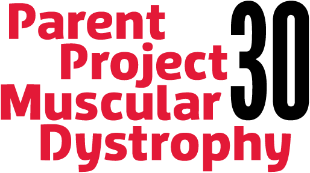Resources
PLoS Currents
Rapid and open sharing of new research data, analyses, and ideas. PLoS Currents: Muscular Dystrophy enables research results and ideas to be shared immediately while ensuring that they will be permanently archived and citable. PLoS Currents provides open access to all content, ensuring that authors reach the widest possible audience. All content is reviewed by a group of expert researchers. PPMD is proud to provide support to launch and maintain PLoS Currents: Muscular Dystrophy.
PPMD’s Data Sharing Policy
PPMD’s mission is to end Duchenne. The sharing of both non competitive pre-clinical data and clinical trial data plays a large role in achieving that goal. Sharing data that is funded by, and/or consists of, the community’s data, is a responsibility every researcher should consider as the study design is planned. Sharing of data can increase data robustness through aggregating data sets, speed innovation, and allow published results to be validated through study replication.
In the past several years, there has been much support for clinical trial data sharing, starting with the Institute of Medicine’s report in 2015 , which noted “the movement towards greater transparency is being further accelerated by trial participants … and a larger cultural shift already underway … in which the results of research are deemed a public good that can benefit society only when shared in a timely and responsible manner.” Health and Human Services (HHS), National Institutes of Health (NIH), and the Food and Drug Administration (FDA) have also issued statements stressing the importance of clinical trial data sharing, requirements for data sharing and how those requirements will be enforced. Most recently, The International Committee of Medical Journal Editors (ICMJE) announced a requirement that manuscripts submitted to ICMJE journals reporting the results of clinical trials must contain a data sharing statement. And lastly the 21st Century Cures Act, which was signed into law in December of 2016, contains language that aims to further require sharing of data generated from government funded research and improving public data sharing platforms, such as Clinicaltrials.gov.
To encourage both pre-clinical and clinical data sharing, PPMD will:
- require a data sharing plan as part of any application it receives
- require publication if appropriate in a timely manner, not to exceed two years post grant termination
- consider an applicant’s record of data sharing as part of the review process
- encourage all clinical data to be collected in CDISC format
PPMD will update and enhance this policy as data sharing platforms and methods become more developed.
Standard Operating Procedures (SOPs) for Duchenne Animal Models
Cardiac Protocols for Duchenne Animal Models
A workshop was organized by the National Heart, Lung, and Blood Institute (NHLBI), and sponsored by PPMD, in July 2014, in order to address Contemporary Cardiac Issues in Duchenne. This workshop resulted in three small groups; one of the groups was tasked to update and develop standard operating procedures (SOPs) incorporating state of the art cardiac assessment and monitoring. Animal Model Small Group members included Dongsheng Duan (co-leader), Jill Rafael-Fortney (co-leader), Alison Blain, David Kass, Elizabeth McNally, Joseph Metzger, and Chris Spurney.
The standardization of operating procedures for cardiac research, and research involving cardiac assessment and monitoring in Duchenne animal models, hopes to improve the comparability of research studies performed in multiple laboratories. These SOPs are not meant to be mandatory, but used as a point of reference among laboratories. They are meant to be “living documents,” incorporating innovation and further improvement as they are implemented.
To read the full SOPs, click here. Concerns/questions/suggestions should be directed to Kathi Kinnett at kathi@parentprojectmd.org.





